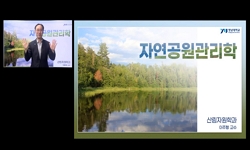본 연구는 고대 그리스 사상에 나타난 ‘자연’ 개념에 기반하여 인간 본성의 의미와 그 실현 가능성을 교육철학적으로 고찰하는 데에 그 목적이 있다. 일찍이 고대 그리스인들은 ‘자연’...
http://chineseinput.net/에서 pinyin(병음)방식으로 중국어를 변환할 수 있습니다.
변환된 중국어를 복사하여 사용하시면 됩니다.
- 中文 을 입력하시려면 zhongwen을 입력하시고 space를누르시면됩니다.
- 北京 을 입력하시려면 beijing을 입력하시고 space를 누르시면 됩니다.

인간 본성에 관한 교육철학적 고찰: 고대 그리스 사상의 ‘자연’ 개념을 중심으로 = A Study on the Human Nature with Philosophy of Education: Focusing on the Concept of 'Nature' in Ancient Greek Thought
한글로보기부가정보
국문 초록 (Abstract)
본 연구는 고대 그리스 사상에 나타난 ‘자연’ 개념에 기반하여 인간 본성의 의미와 그 실현 가능성을 교육철학적으로 고찰하는 데에 그 목적이 있다. 일찍이 고대 그리스인들은 ‘자연’을 주된 학문적 관심사로 삼았으며 그 관점은 크게 다음 세 가지로 압축된다. 우선, 인간의 본성을 이기적 욕망으로 보는 일부 소피스트들의 관점을 들 수 있는데, 이 관점은 순전히 경험적 사고에서 도출된 견해로 인간의 본성을 유한성 안에 고착시킴으로써 정신적 발달의 측면을 도외시한다. 이와는 달리, 플라톤과 아리스토텔레스는 자연을 형이상학적 이념으로 정립시키는 가운데 본성의 다양한 측면들을 조율하는 신적 지성을 하나의 보편자로 상정한다. 다만 플라톤의 ‘형식으로서의 자연’은 초월적 의미의 추상적 보편자로, 아리스토텔레스의 ‘목적으로서의 자연’은 각 개별자에 내재하여 그 고유한 발달을 주도하는 구체적 보편자로 설명된다는 점에서 이 두 관점은 구분되어 논의될 필요가 있다. 이때 목적이 완전히 실현된 상태에서 구현되는 지성의 자유는 본질과 현상 그 어느 쪽으로도 환원되지 않는, 그리하여 현상이 살아있는 본질 그 자체라고 말할 수 있는 ‘최고선’의 경지로 설명된다. 결국, 인간 본성이 실현된다는 것은 학습자 안에 잠재된 지성이 그릇된 욕망이나 자기합리화에 갇히지 않고 지속적인 자기운동을 통해 현실화한다는 것을 뜻하며, 바로 이 점이 고대 그리스의 자연관에서 시사 받을 수 있는 ‘발달’의 사변적 의미라고 말할 수 있다.
다국어 초록 (Multilingual Abstract)
The purpose of this study is to examine the meaning and feasibility of human nature from an educational philosophy perspective based on the concept of “nature” in ancient Greek thought. Early on, the ancient Greeks regarded “nature” as their m...
The purpose of this study is to examine the meaning and feasibility of human nature from an educational philosophy perspective based on the concept of “nature” in ancient Greek thought. Early on, the ancient Greeks regarded “nature” as their main academic concern, and their perspectives are largely compressed into the following three points. First, there is the perspective of some sophists who view human nature as a selfish desire, but this viewpoint is purely derived from empirical thinking, neglecting the aspect of spiritual development by fixing human nature within finiteness. On the contrary, Plato and Aristotle, while establishing “nature” as a metaphysical idea, assume “divine intelligence” that coordinates various aspects of nature as one universal. However, these two perspectives need to be discussed separately in that Plato's “nature as a form” is regarded as an abstract universal in a transcendental sense and Aristotle's “nature as a purpose” is explained as a concrete universal that is inherent in each individual and leads its unique development. The freedom of intelligence embodied when its purpose is fully realized is explained as the state of “the Supreme Good,” which is not reduced to either the essence or the phenomenon, and thus the phenomenon is the living essence itself. Ultimately, the realization of human nature means that the latent intelligence in the learner is realized through continuous self-movement without being trapped in false desires or self-rationalization, and this is the speculative meaning of “development” that can be suggested in ancient Greek natural views.
동일학술지(권/호) 다른 논문
-
- 한국교육철학학회
- 전숙경
- 2023
- KCI등재
-
탈진실 시대, ‘개방적 허구’의 교육 가치 탐구: 하루키의 소설론을 중심으로
- 한국교육철학학회
- 정철희
- 2023
- KCI등재
-
자연과학적 지식 탐구를 통한 인간성 함양의 가능성 탐색: 화이트헤드의 유기체철학을 중심으로
- 한국교육철학학회
- 안수진
- 2023
- KCI등재
-
- 한국교육철학학회
- 홍은영
- 2023
- KCI등재





 KCI
KCI KISS
KISS






